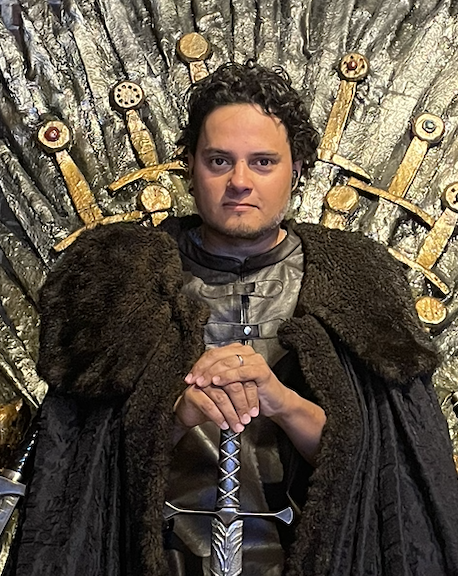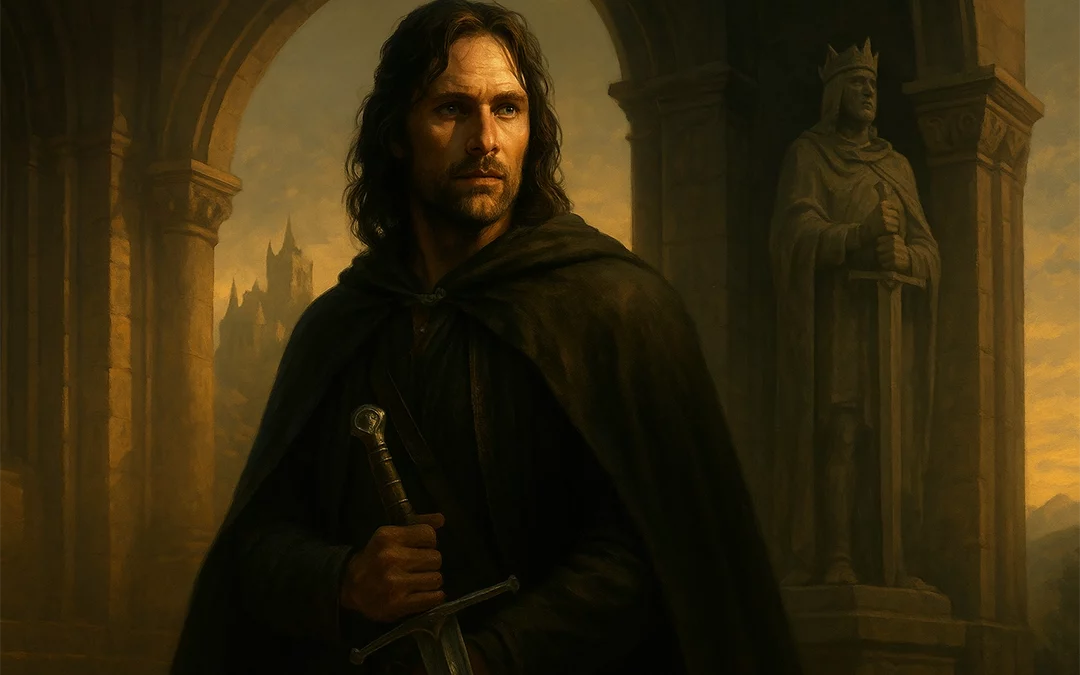Ever wonder why so many fantasy heroes turn out to be long-lost royals, divine descendants, or heirs to ancient power?
From Aragorn to Arthur, from Moses to modern-day chosen ones, the Bloodlines and Hidden Heirs trope runs like a golden thread through centuries of storytelling.
It speaks to something deep inside us: the belief that we might be more than we seem.
A Humble Beginning, a Hidden Destiny
It always starts small. A ranger in exile. A farm boy tending sheep. An orphan with no family, no fame, and no clue about their destiny. Then, somewhere between fate and prophecy, the truth comes out—they’re not ordinary at all. They’re royalty. The Chosen One. The heir to a forgotten kingdom or ancient power.
Aragorn in The Lord of the Rings (J.R.R. Tolkien) is the archetype. Known only as Strider, a grim wanderer of the wild, he hides a secret heritage: the blood of kings. His journey from anonymity to leadership isn’t just a rise in status—it’s an awakening to identity and purpose.
Ancient Origins of the Hidden Heir Trope
The fascination with hidden heirs goes back long before fantasy novels. Ancient myths and religious texts are full of divine or royal children raised in obscurity.
Think of Hercules, the son of Zeus and a mortal woman, whose divine parentage only reveals itself through his trials. Or Moses, hidden as an infant, raised in Pharaoh’s court, and later called to lead his people to freedom. Even King Arthur, perhaps Britain’s most enduring mythic hero, grows up unaware of his noble birth until he pulls the sword from the stone—a moment that transforms destiny into reality.
These stories gave people something powerful to believe in. In societies defined by class and birth, they whispered a radical truth: greatness can come from anywhere.
The Modern Heir: Wrestling With Destiny
Today’s fantasy stories keep the trope alive—but they’ve evolved it for a modern world. The new heirs often question destiny rather than simply embrace it.
Take Jon Snow in A Song of Ice and Fire (George R.R. Martin). Believing himself to be a Stark bastard, Jon lives as an outsider, shaped by rejection and duty. His true heritage, when revealed, changes everything—not just for Westeros, but for Jon’s understanding of who he is.
Or Rand al’Thor in The Wheel of Time (Robert Jordan)—a quiet shepherd who learns he’s the Dragon Reborn, destined to fight the ultimate evil. Or Eragon (Christopher Paolini), a farm boy who discovers a dragon egg and his hidden lineage.
These characters don’t simply inherit power—they confront it. They question whether bloodline should define destiny and whether leadership can be chosen instead of bestowed. In that tension lies the modern appeal of the trope.
Why We’re Drawn to Hidden Heirs
So why does this pattern resonate so deeply? Because it mirrors a universal hope: that there’s something extraordinary within us, waiting to be revealed.
The revelation of royal or divine blood becomes a metaphor for self-realisation. Pulling the sword, wielding the power, or claiming the crown—these are symbolic acts of becoming. They remind us that greatness often hides beneath layers of self-doubt, fear, or obscurity.
The hidden heir is really a stand-in for anyone searching for purpose. It’s not just about who your parents were—it’s about discovering who you are.
Examples of the Hidden Heir Trope in Popular Culture
The trope has shaped some of the most iconic characters in modern storytelling:
- Luke Skywalker (Star Wars) – a farm boy on Tatooine who learns he’s the son of Darth Vader and heir to the Force itself.
- Harry Potter (Harry Potter series by J.K. Rowling) – an ordinary orphan who discovers he’s a wizard—and the only one who can defeat the Dark Lord.
- Percy Jackson (Percy Jackson & the Olympians by Rick Riordan) – a dyslexic teen who learns he’s the son of Poseidon.
- Simba (The Lion King) – an exiled prince who must reclaim his birthright and face the sins of the past.
- Aang (Avatar: The Last Airbender) – the final Airbender and reincarnated Avatar, carrying the responsibility to restore balance to the world.
- Diana Prince (Wonder Woman) – raised as an Amazon warrior, unaware she’s the daughter of Zeus himself.
Each of these characters shares a defining moment of revelation—when the ordinary falls away, and their true identity takes form.
The Enduring Power of the Trope
No matter how often we see it, the Bloodlines and Hidden Heirs story never loses its spark. It’s the narrative of self-discovery disguised as myth. It asks: What if you were meant for something greater? What if the thing you’ve been missing has been inside you all along?
Whether it’s Aragorn claiming his throne, Arthur drawing his sword, or Luke Skywalker embracing the Force, these stories endure because they remind us of the same truth: we’re all heirs to something unseen—our own potential.

D.P. Martinez is a contemporary fantasy author specialising in urban fantasy and magical realism. He holds an M.A. in English Literature from the University of Greenwich, where he focused on Literary London. His research explored metaphorical representations of London in urban fantasy. He has written hundreds of articles and several books across both fiction and non-fiction.

